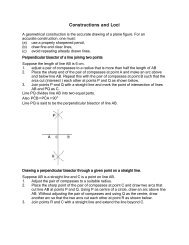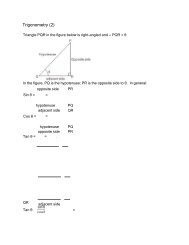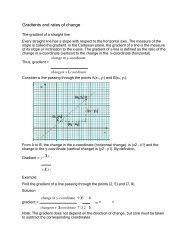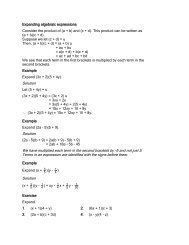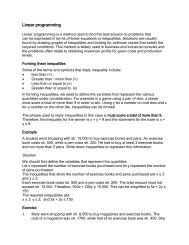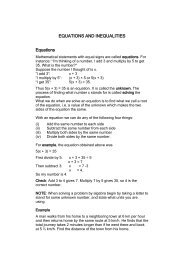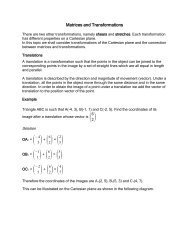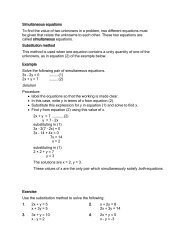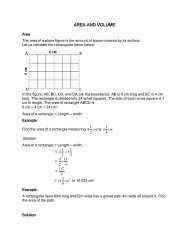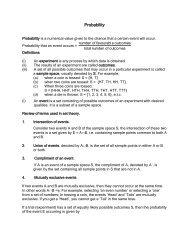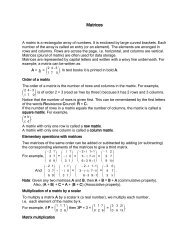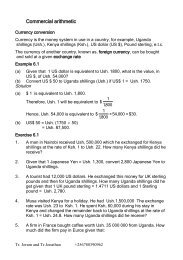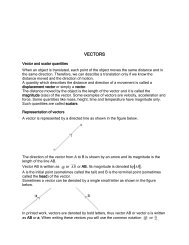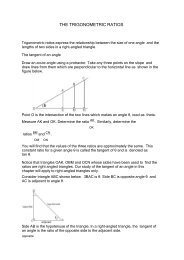J17
You also want an ePaper? Increase the reach of your titles
YUMPU automatically turns print PDFs into web optimized ePapers that Google loves.
Example<br />
A man bought a certain number of golf balls for sh. 2,000. If each ball had cost<br />
Sh. 200 less, he could have bought five more for the same money. How many golf balls<br />
did he buy?<br />
Solution<br />
Let the number of balls be x.<br />
2000<br />
Cost of each ball = sh .<br />
x<br />
2000<br />
If five more balls had been bought, cost of each ball now = ( x + 5 )<br />
2000 2000<br />
Therefore, . - = 200<br />
x ( x + 5 )<br />
Multiplying by x,<br />
2000 2000<br />
x. . - x. = 200x<br />
x ( x + 5 )<br />
multiply by (x+5)<br />
2000<br />
2000(x+5) – x. (x+5) = 200x(x+5)<br />
( x + 5 )<br />
2000x + 10,000 – 2000x = 200x 2 + 1000x<br />
200x 2 + 1000x – 10,000 = 0<br />
x 2 + 5x – 500 = 0<br />
(x – 20)(x + 25) = 0<br />
x = 20 or x = -25<br />
We discard x = -25 as meaningless.<br />
The number of balls bought = 20.<br />
Exercise<br />
Solve by forming a quadratic equation:<br />
1. Two numbers which differ by 3, have a product of 88. Find them.<br />
2. The product of two consecutive odd numbers is 143. Find the numbers.<br />
3. The length of a rectangle exceeds the width by 7 cm. If the area is<br />
60 cm 2 , find the length of the rectangle.<br />
4. The length of a rectangle exceeds the width by 2 cm. If the diagonal is<br />
10 cm long, find the width of the rectangle.<br />
5. The area of the rectangle exceeds the area of the square by 24 m 2 .<br />
Find x.



